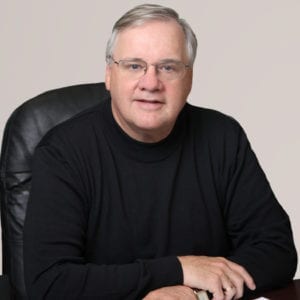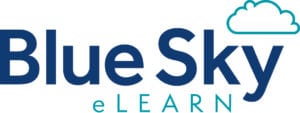As a seasoned veteran of the training industry, Doug Harward, CEO and founder of Training Industry, Inc., is a valuable resource in helping learning professionals more effectively manage the business of learning. He’s also the co-author of What Makes a Great Training Organization: A Handbook of Best Practices and a leading authority on competitive analysis for training services and works with international companies and new business start-ups in building training organizations.
In this episode of the Leading Learning podcast, Celisa talks with Doug about how the industry has – or hasn’t – changed over recent decades and the major challenges and opportunities facing learning businesses now.
To tune in, just click below. To make sure you catch all of the future episodes, be sure to subscribe by RSS or on iTunes. And, if you like the podcast, be sure to give it a tweet!
Listen to the Show
Read the Show Notes
[00:18] – Thank you to Blue Sky eLearn, sponsor of the Leading Learning podcast for the first quarter of 2018. Blue Sky is the maker of the Path learning management system, an award-winning, cloud-based learning solution that empowers your organization to maximize its message. Blue Sky also provides a range of virtual event and instructional services to help you maximize your content and create deeper engagement with your audience. To find out more about Blue Sky eLearn and everything it offers, visit https://www.blueskyelearn.com.
[01:16] – Highlighted Resource of the Week – 10 Things You Must Do When Starting Your Training Company by Doug Harward.
[02:04] – A preview of what will be covered in this podcast where Celisa interviews Doug Harward, CEO and founder of Training Industry, Inc.
[03:20] – Introduction to Doug.
[04:00] – Doug shares some additional information about Training Industry, his role there, and his work.
[04:49] – You have been involved in the training industry for many years. What are some of the changes you’ve seen in the training field and in how learning happens? Doug acknowledges the training industry has evolved quite a bit over the 30+ years he’s been a part of it and they’ve continued to be a very events-based type of profession—most learning occurs through training courses and programs. But he’s found that through technology and other practices is where the biggest change is starting to occur. He thinks the profession is starting to be a bit more focused on the learning experience, not just within one event or program, but over a period of time. This is where he says we’re learning a lot from the science of learning about the way an individual learns over a period of time.
[06:47] – For those of our listeners who have learning and education offerings they might want to take into an organization or company at the enterprise level, offerings that they want to sell into the training function at a company, what advice would you have? What do they need to know about how training works in that context? Any thoughts on how they should approach that kind of business-to-business sale? Doug starts with the idea that we need to deliver value – something we’ve all likely heard many times – but what we struggle with is what does it really mean to provide value, especially when we’re creating or delivering a learning program. The biggest thing is recognizing that when you provide some type of learning solution to your client, the more you can do to make that solution a broader part of the learning experience and extend the learning to help them when they go back to the job is one of the most powerful things you can do to add value.
[09:37] – A further discussion about the importance of focusing on the value around the whole learning experience. Doug adds that they are at a bit of a crossroads and the profession needs to change to create more value and a better perception with executives in the companies. He says we haven’t necessarily proved ourselves as valuable contributors to the business so we need to start thinking about it differently. The good news is executives expect us more of us to perform and show success, a challenge he welcomes.
[11:41] – I know Training Industry focuses on the professional needs of the learning professional, and leaders of corporate learning are squarely in your target audience, but you’re also interested in developing leaders. Can you talk a bit about how—and why—you do that? Doug talks about how they’ve had a passion for understanding best practices and where the profession is moving/industry is shifting. One of the things they recognized a number of years ago is there really aren’t a lot of development programs out there for the leaders of corporate training functions. He shares how they’ve done research and partnered with Pearson to put together a certification program called the Certified Professional in Training Management (CPTM™). This creates an extended experience program that develops business leaders who happen to work in training—as opposed to training professionals who happen to work in business. The program is focused on business skills as they relate to corporate training and they teach best practices on how to manage what they call the high performing training function. Doug notes they are very passionate about this space and continuing to do research and offer more programs that help the business leaders of training make the shift.
[13:54] – Celisa and Doug talk about how the idea of the CPTM™ also aligns with the importance of focusing on the experience versus the events. Doug shares more about the program and says it’s the fastest growing program in the industry for training managers.
[15:04] – What do you see as the major opportunities and threats for learning businesses today? Doug identifies the greatest threat is us—not an outside threat, it’s us not making the changes we need to align to the needs of the business. He stresses we have to change and recognize the problems we’re experiencing in our profession aren’t coming from outside forces, they’re internal issues with how we’re doing things. On the other hand, the greatest opportunities are related to learning more about how to provide broad-based, extended learning experience programs and solutions. Doug points out there are wonderful technologies entering the market around adaptive learning platforms and mobile apps—things that allow them to extend the experience. He’s also excited about the research from neuroscientists around the science of learning and stresses that how we design learning solutions is really an opportunity because there’s a level of consistency about how the brain works and people learn.
[19:42] – Doug also makes a point about the 70/20/10 model which states that 70% of the information that a knowledge worker gets to do their job comes from on the job experiences, 10% comes from formal learning, and 20% from social. He says the 10 is where our focus has been but need to learn how to make impact at the 70. He talks about neuroscientist Dr. Anders Ericsson of Florida State University and how he’s worked with him on some joint research projects—his recent book, Peak: Secrets from the New Science of Expertise deals with the concept of performance and how to become an expert in whatever field you’re in. The book talks about the concept of deliberate practice and explores why we aren’t designing practice into the job and actually creating a purposeful approach to get better every day.
[21:32] – For the book, What Makes a Great Training Organization: A Handbook of Best Practices, you and Ken Taylor, your co-author, looked at a lot of data to come to the conclusion of what makes a great training organization. Based on that data, based on your experience, what would your top tip or two be for folks currently running a learning business? What should they be doing that they’re likely not doing? Doug shares the most important thing you can do is to shift your focus from how to manage events, programs, and courses to really think about how to build and develop a high performance learning system—the bringing together of all the different learning opportunities that an individual has or needs over the period of time where they go from new on that job role to the time they reach what they would consider a target level of performance. So you need to think about the total time it takes for an individual to become an expert performer on the job and to get out of the micro thinking about how to build the best course to how to design a learning system that includes all of those particular things. So it’s about the long game, or extended experience of how to get an individual up to peak performance and being system oriented rather than event oriented.
[24:47] – What’s going on in learning these days that most excites you, or what’s on the horizon that you’re avidly watching? Doug shares he’s getting most excited about research around high performing learning systems—meaning what are all the elements and variables that you have to control to get somebody from a new hire to a point of peak performance. He says they are really excited about practice, or the idea that it’s the practice of learning that’s more powerful than a tool, technology, or course—all of these things are enablers but it’s how we put them all together that gets him excited and he sees it as the future of their profession.
[27:10] – What is one of the most powerful learning experiences you’ve been involved in, as an adult, since finishing your formal education? Doug talks about an experience where he was asked to manage a team that looked at changing business processes and how they came up with a new model to do this which ended up resulting in the largest deal ever done in the corporate training industry at the time. This taught him how to put big deals together and changed his life because it gave him business skills and how to apply them.
[29:35] – How to connect with Doug and/or Training Industry:
Website: https://trainingindustry.com/
Email: dharward@trainingindustry.com
[30:24] – Wrap Up
If you are getting value from the Leading Learning podcast, be sure to subscribe by RSS or on iTunes. We’d also appreciate if you give us a rating on iTunes by going to https://www.leadinglearning.com/itunes.
We’d also be grateful if you would take a minute to visit our sponsor for this quarter, Blue Sky eLearn. In addition to finding out about their services, you will also find a variety of great resources that they offer for free.
Also, consider telling others about the podcast. Go to https://www.leadinglearning.com/share to share information about the podcast via Twitter, or send out a message on another channel of your choosing with a link to https://www.leadinglearning.com/podcast.
[32:45] – Sign off



 Making You a MetaLearner With Nasos Papadopoulos
Making You a MetaLearner With Nasos Papadopoulos
Leave a Reply